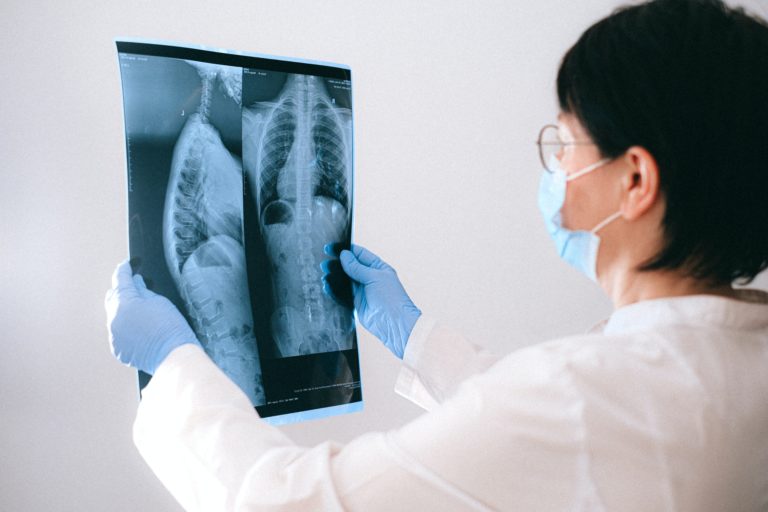At the core of NCRI’s activities is a focus on improving the quality and delivery of research to maximise patient benefit. NCRI Groups, including CMPath and CTRad, review and advise on research proposals and develop studies to address gaps in the research portfolio.
Ensuring the development of high-quality research
NCRI supports researchers in developing high-quality research by providing guidance on research proposals. NCRI matches researchers with a multi-disciplinary panel of experts selected to reflect the needs of the proposal. Researchers present their ideas for discussion and receive written recommendations on how they might develop their proposal.
This year NCRI ran proposals guidance meetings in the following areas :
- Lung cancer
- Multi-disciplinary trials
- Pathology
- Prehabilitation
- Proton beam therapy
- Radiotherapy
Successful funding for innovative clinical trials
Matching rare cancer patients with potential treatments
The DETERMINE trial is the first of its kind in the UK to establish a joint protocol for childhood, teenage and adult cancer patients. The state-of-the-art platform trial will make use of existing genetic testing occurring in the UK to match patients with specific genetic alterations to medicines that are licenced in other cancer types that target the same alteration.
The study incorporates a transformative translational research program to understand the genetic and tumour microenvironment factors that influence treatment response. To obtain guidance on the study before applying for funding, the researchers approached several NCRI Groups. The groups provided advice on recruitment criteria and biomarker elements which the researchers incorporated into the proposal.

‘First of its kind’ lung cancer trial
The CONCORDE trial will explore the use of new drugs alongside standard radiotherapy in the hope of improving survival for people with advanced non-small-cell lung cancer (NSCLC).
A consortium established by NCRI CTRad and the NCRI Lung Group developed CONCORDE to address the lack of radiotherapy and drug combination trials for non-small cell lung cancers, despite the development of new drug treatments.

Clinical trials changing treatment practice
De-escalation of treatment for breast cancer patients
The NCRI Breast Group has provided vital evidence to reduce unnecessary treatments and relevant toxicities for patients as well as reducing costs for the NHS.
The PERSEPHONE trial compared six months and 12 months of trastuzumab (Herceptin) to reduce the risk of cancer recurring. The trial found that 6-month trastuzumab treatment is non-inferior to 12-month treatment. The results support the consideration of reduced duration trastuzumab to reduce recurrence.
Initial reviews with the NCRI Breast Group were crucial in the development of the trial. Further support from the NCRI Breast Group increased engagement from specialists across the country thanks to its influence and gathered support for the group addressing de-escalation.
The NCRI Breast Group has provided essential and substantial support for Persephone and all other trials in the group portfolio. Without the group infrastructure, Persephone would not have happened.
Professor Helena Earl, Professor of Clinical Cancer Medicine, University of Cambridge and past NCRI Breast Group member
Providing evidence to support the standard of care for ovarian cancer patients
The standard of care for the treatment of ovarian cancer includes surgery to remove the tumour and chemotherapy, either before surgery to shrink cancer cells or after surgery to destroy remaining cancer cells.
The NCRI Gynaecological Group addressed unanswered questions relating to the frequency of chemotherapy. Evidence from a study in Japan suggested having smaller doses of chemotherapy more frequently might increase survival. However, it might also increase side effects. The ICON8 trial compared the weekly scheduling of chemotherapy to the standard three weeks regimen. This trial showed that in European women, weekly chemotherapy was no more effective in controlling ovarian cancer. The treatment did also cause more side effects.

Evolving the NCRI Groups to maximise potential
NCRI has developed a new operating model for the NCRI Groups, which will see them become more focussed, whilst involving a wider network of researchers. Led by a leadership group and supported by NCRI, they will drive change against strategic priorities in the most diverse, flexible and resource-efficient way.
This change will maximise the groups’ potential, becoming thought leaders that set and drive the research agenda, particularly in strategic, cross-cutting areas of unmet need.
The first groups will begin to transition to this new model in 2021.